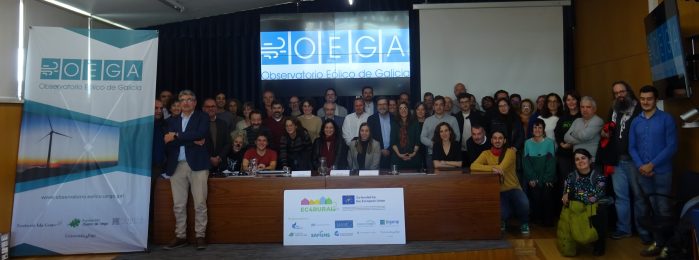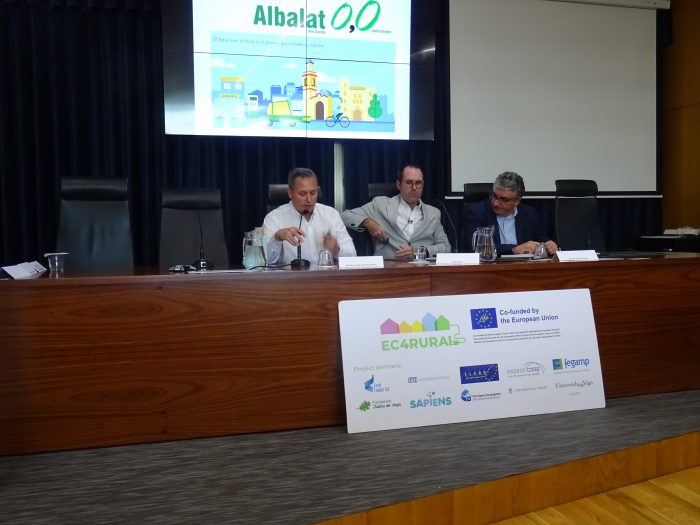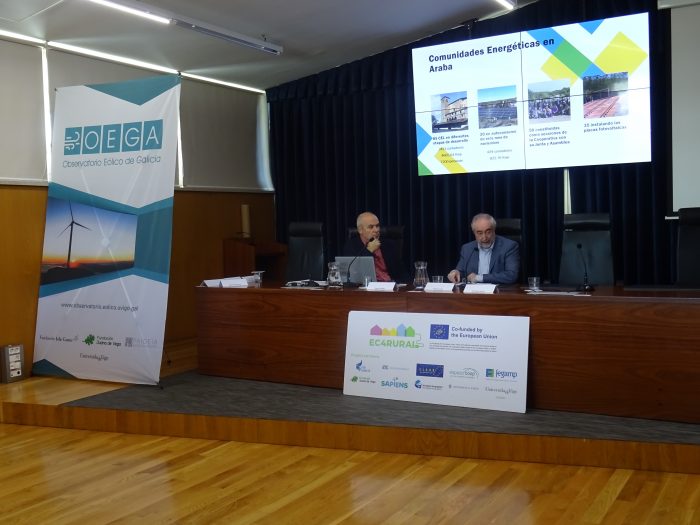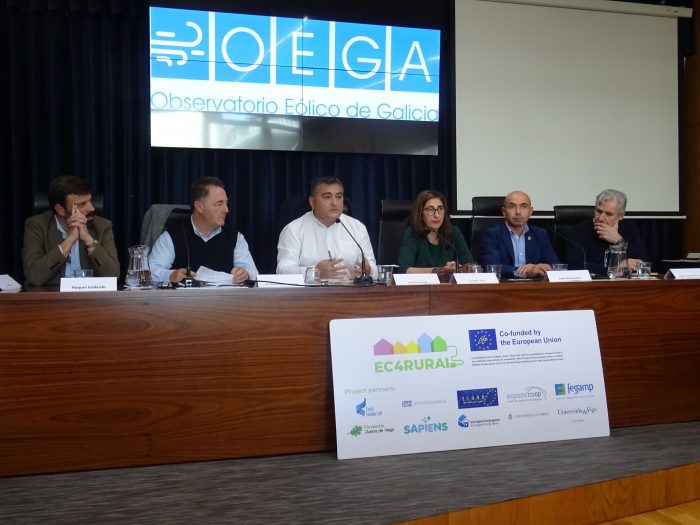
-
Facultade de Económicas
Universidade de Vigo
-
observatorio.eolico@uvigo.gal
-
Triumphant success in the training session on rural energy communities
- Home
- Documentation
- Triumphant success in the training session on rural energy communities

- by OEGA
- 0 Comments
A comprehensive overview of the legal, technological, social, and economic aspects of the development of energy communities in Spain was provided to instructors and policymakers during this training day. Over 70 participants from various sectors attended, including local administration (political and executive technical positions), small energy businesses (distributors, retailers, and energy service providers), legal and cooperative services, representatives from mountain communities, environmental associations, and rural development groups, among others.

Jorge Andrey Sterner from the Schlaich Dauss SLP law firm delved into the current legal landscape and the potential future of energy communities, with a specific focus on the pivotal role of local entities in this process.
Jesús Sánchez-Ostiz, the director-general of the Red de Comunidades Energéticas S. Coop. Navarra, shared the pioneering experience of Navarra in developing energy communities. Professor Sánchez-Ostiz presented the cooperative business model based on their collective experience involving 128 entities.
The presidents of Sapiens Energía, Juan Sacri, Nicolau Josep Claramunt, Mayor of Albalat dels Sorells, and Álvaro Ferrero, Mayor of Portell de Morella, captivated a packed audience with the outstanding experience of the Valencian Community in these community initiatives. They demonstrated how community development and environmental respect are not mutually exclusive, showcasing examples from both a metropolitan area, Albalat, and a rural municipality, Portell.

The development of energy communities in Álava and Navarra was the focus of the next panel discussion. Rafael Larreina, president of the Red de Comunidades Energéticas S. Coop. Navarra, reflected on the central role played by Administrative Councils, sub-municipal administrative units, in advancing the empowerment of local communities by actively promoting community action in the energy sector. Carmentxu Etxarte, president of the Comunidad Energética Urroztarra, and Raquel Campillo, president of the Cooperativa Garesbide de iniciativa social, passionately illustrated their collective experiences in advancing local initiatives that strengthen the social and rural fabric.

After learning about the existence and scope of numerous community energy experiences in other regions of Spain, participants wondered why Galicia has seen only an exceptional, almost non-existent phenomenon. Despite ongoing initiatives, no energy community in Galicia is of yet connected to the grid. “A temporary deficiency that we will soon overcome,” said Xosé Manuel Golpe, moderator of the session on energy communities in Galicia and an expert in the sector as an energy consultant in the Provincial Council of A Coruña. Several experiences were presented in this session. Ana Millán Dieste, president of the Arousa en Transición Association, discussed the pioneering nature of the group’s community work on the Illa de Arousa, set to become the first community initiative in Galicia about to be connected to the grid. José Manuel Álvarez Campana, president of the public company Sumarte, from the Arteixo City Council, presented the initiative of the Arteixo Citizens’ Energy Cooperative, which plans to develop a 1.5 MW installation to serve thousands of citizens in Arteixo. This initiative collaborates with Ekiluz. Finally, José Ulla, mayor of Begonte, accompanied by Miguel Angel Zamorano, as the energy advisor to the municipality, shared the ambitious proposal for renewable energy development in Begonte, a municipality placed in the Terra Chá region, indicating that they secured a significant amount of funding from IDAE but faced technical, administrative, and environmental challenges in fully implementing the project, so they are reconfiguring it. This initiative is of great interest due to the participation of a significant social mass of livestock owners.

Due to last-minute logistical issues, the initiative of Renovables de Liñares, S.C.G., a community action in the municipality of As Neves, in the Condado region, could not attend.
The training session concluded with the participation of José Luis Pascual Criado, the general director of the European Territorial Cooperation Group Douro-Duero. The experience of the community developed on the border between Salamanca and Zamora, Spain, and Beira Interior Norte, Douro, and Trás-os-Montes, Portugal, is of enormous interest to the Galicia-Northern Portugal cross-border space. At the same time, the community business model developed by the Group is exportable to small rural population centers like those in Galicia.

The day ended with conclusions from the leaders of the Wind Observatory of Galicia and the EC4RURAL project, coordinated by the University of Vigo, highlighting the promising path initiated to make local communities in rural areas central to the clean energy transition.